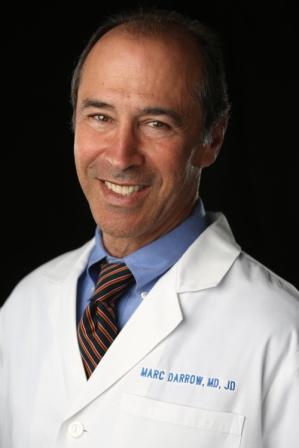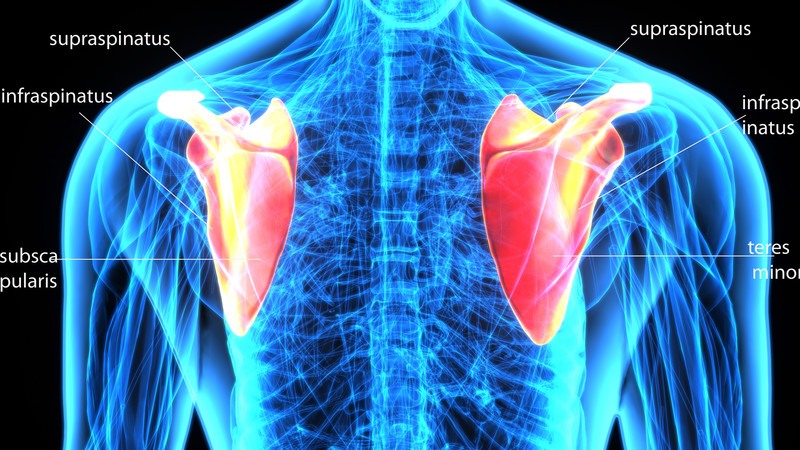
Over the years I have seen many shoulder problems. Surfers are a particular group of interest in that many surfers have problems, not in one shoulder, but in both shoulders. While there are many articles on shoulder pain, it is surprising that there is not more specialized information available to the surfer about their shoulder injury. A January 2021 review article (1) from an international team of specialists points this out: “Chronic shoulder complaints are frequently reported amongst surfers, though literature researching its pathophysiology and prevention is scarce.” The researchers then wrote that their review would then provide an overview of the current literature. Here is the summary of their overview:
“Wave surfing will debut in the next Olympic Games and is increasingly popular as a sport. . .In surfers with shoulder complaints, external rotation range of motion and external rotation strength are impaired. Scapulothoracic dyskinesis (abnormal scapula motion, shoulder instability, shoulder impingement) may occur and subacromial pain syndrome may coincide.
Further research should address potential pectoralis minor shortening (Let’s explain: One characteristic among many of a “shortened” muscle is that the muscle is tight and possibly in spasms. Muscle spasm can be a sign of tendon and ligament weakness as the muscle is trying to stabilize a joint instead of doing its regular job of powering the joint. Ligaments provide the shoulder with stability, tendons are the muscles attachments to the bones that help the muscle provide power. If the muscle is in spasm and “shortens” the muscle will then pull on the tendon, tearing at it. The shoulder then becomes weak and painful.
The review paper also points out that muscle shortening can lead to “aberrant scapular tilt” and lateral rotation of the scapula. The scapula has moved out of its natural position and can then cause a problem of “scapular winging.” The surfer’s shoulder can also be characterized by external rotation deficit (limited range of motion).
Paddling, a cause of Surfer’s Shoulder
Paddling can cause an overuse injury in the shoulder. Typical of overuse injury is the inflammation and pain come with shoulder movement. As I mentioned above muscles can become shortened when they are injured, in spasm, or when the atrophy. Surfer’s can also develop bursitis of the shoulder an shoulder impingement.
Shoulder Impingement Treatment
I see many people who continue with their sport or surfing through their shoulder pain, sometimes they continue through a severe shoulder pain. Surfers may complain about pain when they extended their hands over their head during swimming or paddling out. The pain is now beyond the control of RICE (rest, ice, compression, and elevation) and self-medicating with anti-inflammatory medications. When you got to the point where you may have to stop surfing and swimming, this is when you decided to get medical care. Medical care may not have been to your likening. You may have not liked the suggestion your doctor gave you to stop activities for a while to see if your shoulder heals on its own. You may have liked it worse when after a long bout of rest, you tried a little swimming and your shoulders still hurt.
When you returned to your doctor after the rest period and want to try something else to help accelerate your healing you may have been told to go to physical therapy to see if that works. You can also try a cortisone injection.
Treatment for shoulder pain
Once pain is determined to come from the subacromial space of the shoulder, that is the area of the rotator cuff tendons and the subacromial bursa, then shoulder impingement is often diagnosed. The impingement occurs when the Acromion’s underside, presses against the rotator cuff tendons, wear and tearing at them. When a patient comes into our office we will perform a detailed physical examination of the shoulder looking for pain generators. Spots on the shoulder that elicit a pain response when pressed. Typically these are the spots of damage.
In our practice, Stem Cell Therapy is a treatment for musculoskeletal disorders. We treat degenerative joint disease, degenerative disc disease of the spine, and tendon and ligament injury. We offer stem cells drawn from patient’s own bone marrow. Stem cells are “de-differentiated pluripotent” cells, which means that they continue to divide to create more stem cells; these eventually “morph” into the tissue needing repair — for our purposes, collagen, bone, and cartilage.
By isolating the areas that are damaged and injecting these spots with stem cells we can be confident that healing can occur. The connection between Subacromial impingement of the rotator cuff and the development of rotator cuff tendinopathy is clear. In many patients we see the impingement and the tendinopathy are only parts and contributing factors to shoulder pain.
Bone Marrow aspirated stem cells injected into the shoulder
This is pointed out in our research which appears in the peer-reviewed journal Cogent Medicine. The study can be found here in its entirety: Treatment of shoulder osteoarthritis and rotator cuff tears with bone marrow concentrate and whole bone marrow injections with a June 20, 2019 publication date.
Here we were able to demonstrate that:
- Patients with rotator cuff tendinopathy and degenerative shoulder disease would benefit from either one and two stem cell treatments. Patients reported significant improvements in resting pain, active pain, and functionality score when compared to baseline.
- These groups also experienced a 42.25% and 50.17% overall improvement respectively.
- The group that received two treatments experienced statistically significant improvements in active pain when compared to the group that received one injection.
- There were no significant outcome differences between rotator cuff tear and osteoarthritis patients.
Conclusions: Our study demonstrated that patients diagnosed with shoulder osteoarthritis or rotator cuff tears experienced symptomatic improvements in pain and functionality when injected with bone marrow concentrate (BMC) or whole bone marrow (WBM). Further randomized control studies are needed to validate these findings.
Do you have questions about your shoulder pain? Ask Dr. Darrow
Marc Darrow, MD., JD. is the medical director and founder of the Darrow Stem Cell Institute in Los Angeles, California. With over 23 years experience in regenerative medicine techniques and the treatment of thousands of patients, Dr. Darrow is considered a leading pioneer in the non-surgical treatment of degenerative Musculoskeletal Disorders and sports related injuries.

11645 WILSHIRE BOULEVARD SUITE 120, LOS ANGELES, CA 90025
PHONE: (800) 300-9300 or 310-231-7000
Stem cell and PRP injections for musculoskeletal conditions are not FDA approved.
We do not treat disease. We do not offer IV treatments. There are no guarantees that this treatment will help you. Prior to our treatment, seek advice from your medical physician. Neither Dr. Darrow, nor any associate, offer medical advice from this transmission. This information is offered for educational purposes only. The transmission of this information does not create a physician-patient relationship between you and Dr. Darrow or any associate. We do not guarantee the accuracy, completeness, usefulness or adequacy of any resource, information, product, or process available from this transmission. We cannot be responsible for the receipt of your email since spam filters and servers often block their receipt. If you have a medical issue, please call our office. If you have a medical emergency, please call 911.
References
1 Langenberg, L.C., Lima, G.V., Heitkamp, S.E., Kemps, F.L.A.M., Jones, M.S., Moreira, M.A.D.A.G. and Eygendaal, D., 2021. The Surfer’s Shoulder: A Systematic Review of Current Literature and Potential Pathophysiological Explanations of Chronic Shoulder Complaints in Wave Surfers. Sports Medicine-Open, 7(1), pp.1-11.


